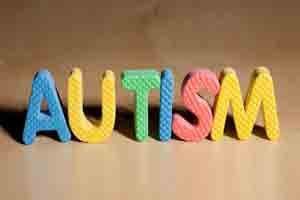- Home
- Editorial
- News
- Practice Guidelines
- Anesthesiology Guidelines
- Cancer Guidelines
- Cardiac Sciences Guidelines
- Critical Care Guidelines
- Dentistry Guidelines
- Dermatology Guidelines
- Diabetes and Endo Guidelines
- Diagnostics Guidelines
- ENT Guidelines
- Featured Practice Guidelines
- Gastroenterology Guidelines
- Geriatrics Guidelines
- Medicine Guidelines
- Nephrology Guidelines
- Neurosciences Guidelines
- Obs and Gynae Guidelines
- Ophthalmology Guidelines
- Orthopaedics Guidelines
- Paediatrics Guidelines
- Psychiatry Guidelines
- Pulmonology Guidelines
- Radiology Guidelines
- Surgery Guidelines
- Urology Guidelines
Having close relative with epilepsy may increase autism risk: Study

London : Having a close relative with epilepsy may increase a person’s risk of being diagnosed with autism, says a study.
“Other studies have linked the two conditions. However, our study looks specifically at the brothers and sisters and sons and daughters of people with epilepsy to determine a possible autism risk in these relatives,” said study author Helene Sundelin from the University Hospital in Linkoping, Sweden.
The findings were published in the online issue of Neurology, the medical journal of the American Academy of Neurology.
For the study, researchers looked at a data registry and identified 85,201 people with epilepsy, as well as all of their siblings (80,511 people) and offspring (98,534 people).
Each person with epilepsy was compared with five people without epilepsy of similar age, sex and from the same county during the same period.
The siblings and offspring of those with epilepsy were also compared with siblings and offspring of people without epilepsy.
During the average six-year follow-up period of the study, 1,381 of participants with epilepsy and 700 of the people without epilepsy were diagnosed with autism.
People with epilepsy were therefore at increased risk of being diagnosed with autism (1.6 percent compared to 0.2 percent), with the highest risk seen in those diagnosed with epilepsy in childhood (5.2 percent).
The study found a 63 percent increased risk of developing autism for siblings and offspring even when the person with epilepsy was excluded.
Offspring of mothers had a 91 per cent increased risk and offspring of fathers had a 38 per cent increased risk.
“The goal is to find out more about how these two diseases may be linked so that treatments may be developed that will target both conditions,” Sundelin said.

Disclaimer: This site is primarily intended for healthcare professionals. Any content/information on this website does not replace the advice of medical and/or health professionals and should not be construed as medical/diagnostic advice/endorsement or prescription. Use of this site is subject to our terms of use, privacy policy, advertisement policy. © 2020 Minerva Medical Treatment Pvt Ltd